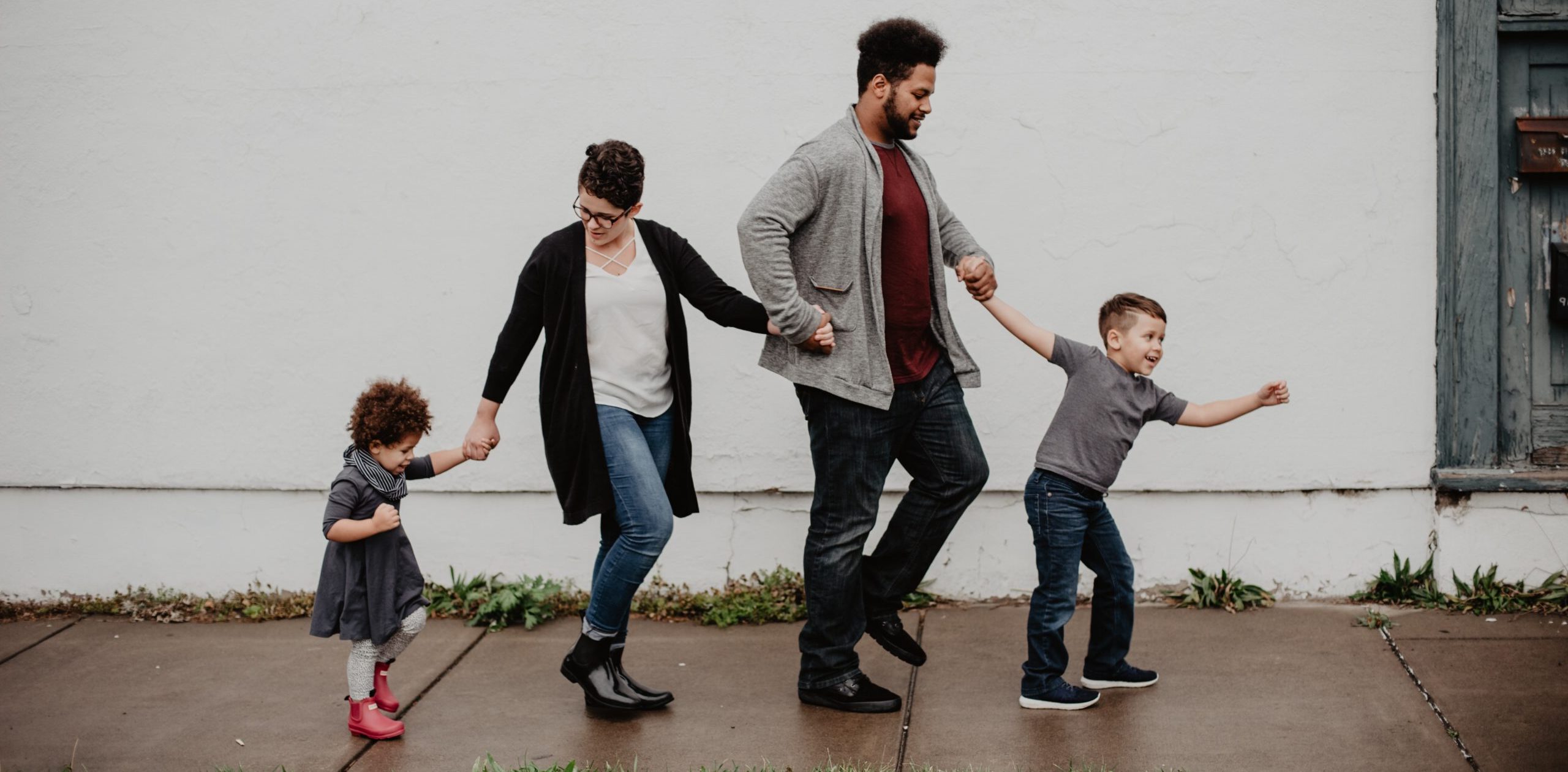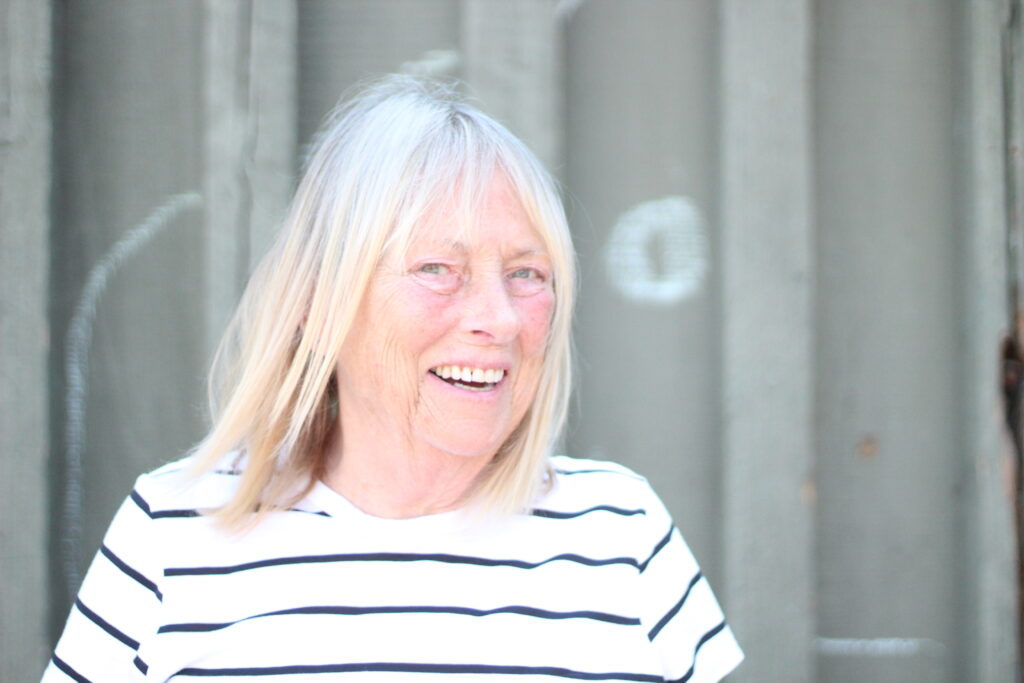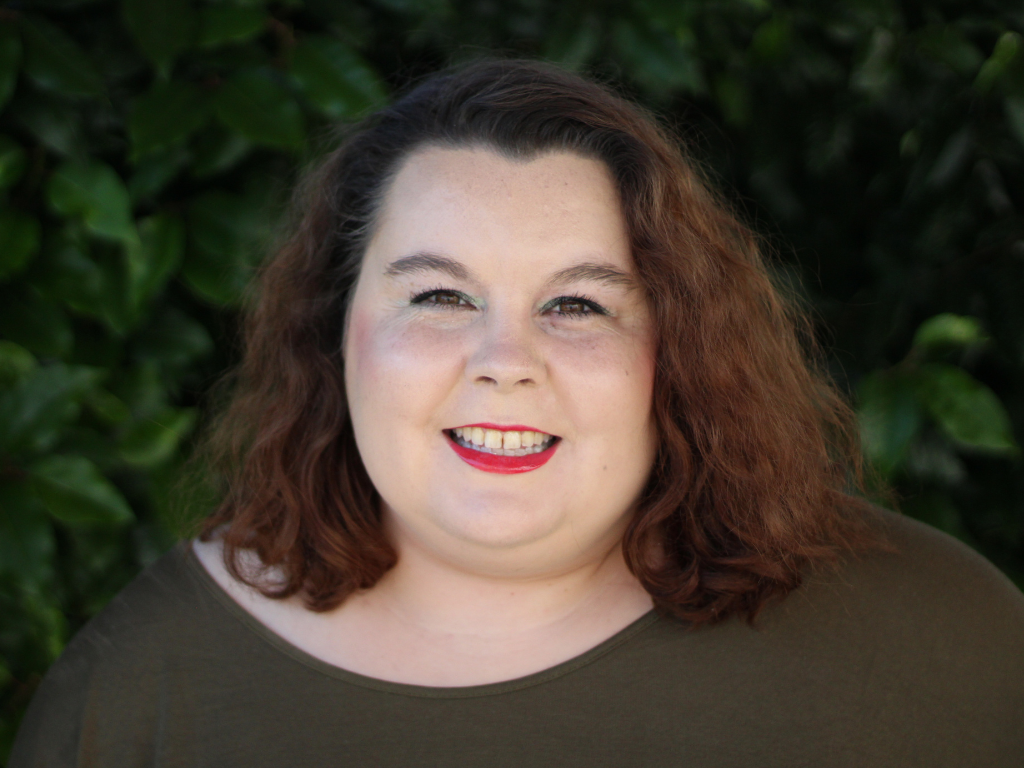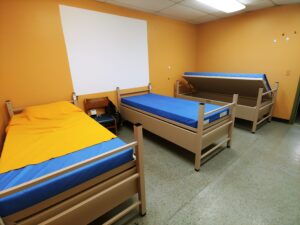Families
26 beds
According to Whatcom County School Districts, 1000+ K-12 students were homeless during the 2020-21 school year
The Problem:
There is currently no crisis family shelter in Whatcom County aside from Base Camp. Base Camp currently has the capacity to serve one single parent family. Just one! It is a small space with a private bathroom, but it is not very accommodating for family living because of the small size.
Solution:
The new building will have a 26-bed family crisis micro-shelter to accommodate up to six one- and two-parent families. To help families feel comfortable and at ease, this micro-shelter will have a separate entrance, a community living kitchenette, a play area, and a separate deck.

With this new development, families in transition can stay together and have the space they need to feel at home while they work to get back on their feet.
Elderly & Medically Fragile
25 Beds

There are many people without shelter who are elderly or have serious health conditions. They need extra care, but their health concerns are not severe enough to stay in the hospital.
The Problem:
Base Camp staff do their best to accommodate a variety of needs, from people on dialysis, to those going through cancer treatment, to those who are elderly. At Base Camp, the space was not designed to accommodate these people. A long walk to reach the restrooms and showers and the overall setup of the building makes it challenging for staff to support the needs that often come along.
The Solution:
The new building will make life easier for people who are going through difficulties that can not be addressed in a typical shelter environment. There will be a dedicated area for this group with easy access to restrooms and showers.
In addition to a separate shelter area, the new building will house a medical clinic with three exam rooms, an increase from Base Camp, which only has one exam room.
Mental & Behavioral Health
25 beds
The Problem:
Men and women with mental and behavioral health concerns often have difficulties living at Base Camp. There is not always enough space for them to feel comfortable, and living with so many other people can exacerbate an existing condition. Many people can become escalated, which causes conflicts and disruptive behavior. To preserve the safety of everyone at Base Camp, those who act out with unsafe and disruptive behavior are exited from the program. There is always a path back to services with us. Still, unsafe behavior can mean that people are back on the street for a time as they work with staff to re-enter.
The Solution:
This specific Micro-shelter will create a more spacious environment for individuals with mental and behavioral health struggles, allowing them to have their own space away from the noise of the general shelter. A quiet, specialized space will reduce conflict and allow for longer stays and more continuous support from local mental and behavioral health professionals. Caring for our neighbors in this way ensures that they are getting the care they need to manage their mental health, without having to go back to living on the street.

Working Dorm/Flex Use
24 Beds
The Problem:
Many people who are homeless are still working. But living in a shelter can be difficult if you have varying hours and can not make it back in time for the nightly check in. Base Camp currently has a small 12-bed working/flex dorm for men. The average stay is six months and guests are permitted to stay for up to a year. There has been great success with this dorm, but it has not been available for women due to space constraints.

The Solution:
The new shelter will expand a working dorm option to women and give everyone an improved living space. Like the current dorm, the schedule will be more flexible, and people who work nights or variable schedules can check in when they need, and have a quiet place to sleep.
Those staying in our working dorm will have focused case management where they are encouraged to save money and supported in addressing any legal problems they may have.
Staff have found that as people are working with their case manager, mental health conditions or addiction are sometimes discovered. This staff support gives people the ability to get connected with additional services or enter the Mission’s recovery programs.

